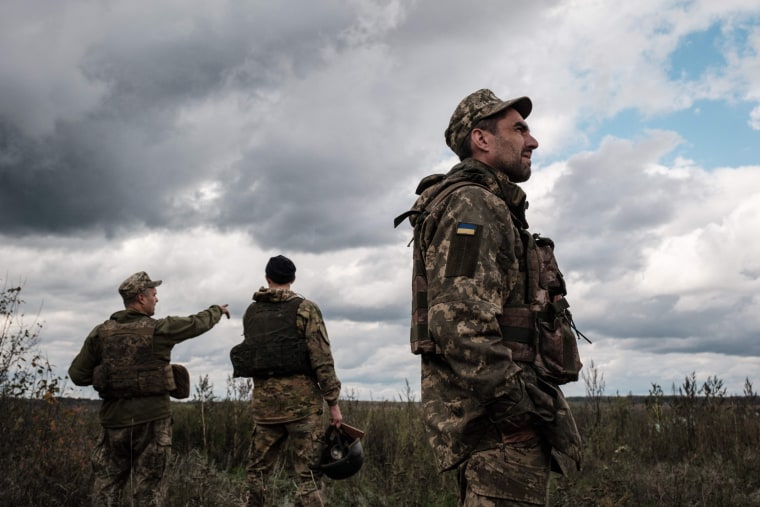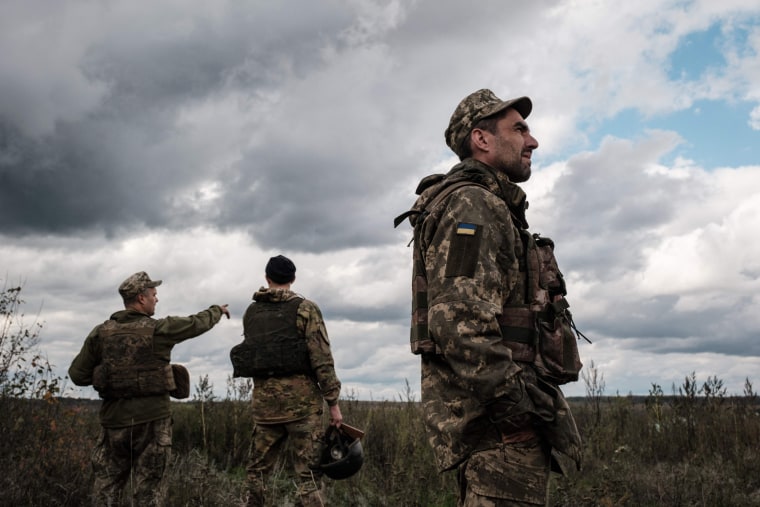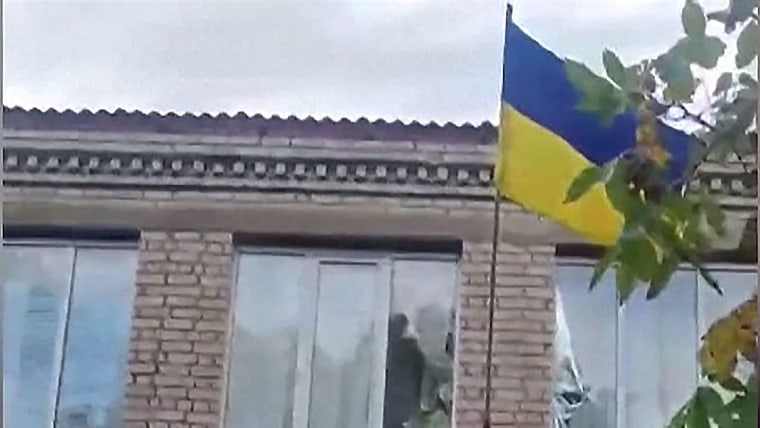Kyiv’s troops broke through earlier this week, threatening a deeper thrust that could see them inch closer to the administrative center of Kherson, which has been occupied since the early days of the war and is a strategically important port city with access to the Black Sea.
While Russia’s Defense Ministry has not officially commented, the Russian-installed deputy head of the regional administration appeared to acknowledge its troops had lost ground in the south.
The Russian army in the Kherson region was “regrouping” to gather strength and strike back, Kirill Stremousov was quoted as saying by the state news agency Ria on Wednesday. He said there was “no movement” in Ukraine’s advance as of Wednesday, and Ukrainian forces entering into the city of Kherson was “impossible.”
Meanwhile, Kremlin spokesman Dmitry Peskov vowed that Russian forces would retake annexed territory that had been lost in the Ukrainian advance and that land will be with Russia “forever” — as Putin promised last week. “They will be returned,” Peskov told reporters.
NBC News could not verify either side’s claims, but Western analysts said evidence suggested Ukraine’s military had gained the upper hand in the area.
British military intelligence said Wednesday that Ukraine continued to make progress in offensive operations along both the northeastern and the southern fronts, while the Institute for the Study of War, a U.S.-based military think tank, said in its assessment Tuesday that Ukraine’s forces continued to make “substantial gains” in the north of the Kherson region, “beginning to collapse the sparsely-manned Russian lines in that area.”
Ukraine’s military has forced Russian troops to fall back to their second defensive line, but there has not yet been a collapse like the one seen during Ukraine’s lightning counteroffensive in the northeast last month, said Jack Watling, a military analyst at the Royal United Services Institute, a think tank in the United Kingdom.

“But the significance of these advances is that it’s progress, and it’s continuing to create problems in very different geographic areas for the Russian command,” Watling said, adding that it was wearing down some of Moscow’s “more capable troops.”
“I think they are going to try to hold the second defense line, make it as strong as possible and play for time.”
That play for time may be an effort to test the resolve of Ukraine’s Western allies and to allow Russia’s newly mobilized troops to join the fight and strengthen its struggling military.
Zelenskyy spoke with President Joe Biden on Tuesday, who underscored that the United States will never recognize Russia’s annexation. It came as the Biden administration announced a new $625-million security assistance package for Ukraine that includes additional weapons and equipment.
Russian Defense Minister Sergei Shoigu said Tuesday that more than 200,000 people had already been drafted into Russia’s armed forces after a call-up that prompted an exodus of men of military age from the country and has also left analysts doubting its ability to drastically change Russia’s fortunes on the battlefield.
If Russia could quickly deploy additional troops that were well-trained, well-equipped, properly supplied and effectively integrated into existing force structures, then that would have an impact, said Christopher Tuck, an expert in conflict and security at King’s College London.
“Ukrainian gains to the northeast of Kherson, for example, have been made against Russian forces that are weak and exhausted,” Tuck said. “Good quality reinforcements would clearly improve Russian defensive capabilities, but none of those conditions apply.”
The troops being mobilized will still take weeks to arrive in numbers, and seem likely to be poorly trained, badly equipped and supplied, and fed into a military organization that is already in many cases demoralized, according to Tuck.
“Modern land warfare is lethal to poorly trained troops,” he added. “It is likely that any newly mobilized forces will evaporate like water under the stress of combat.”





